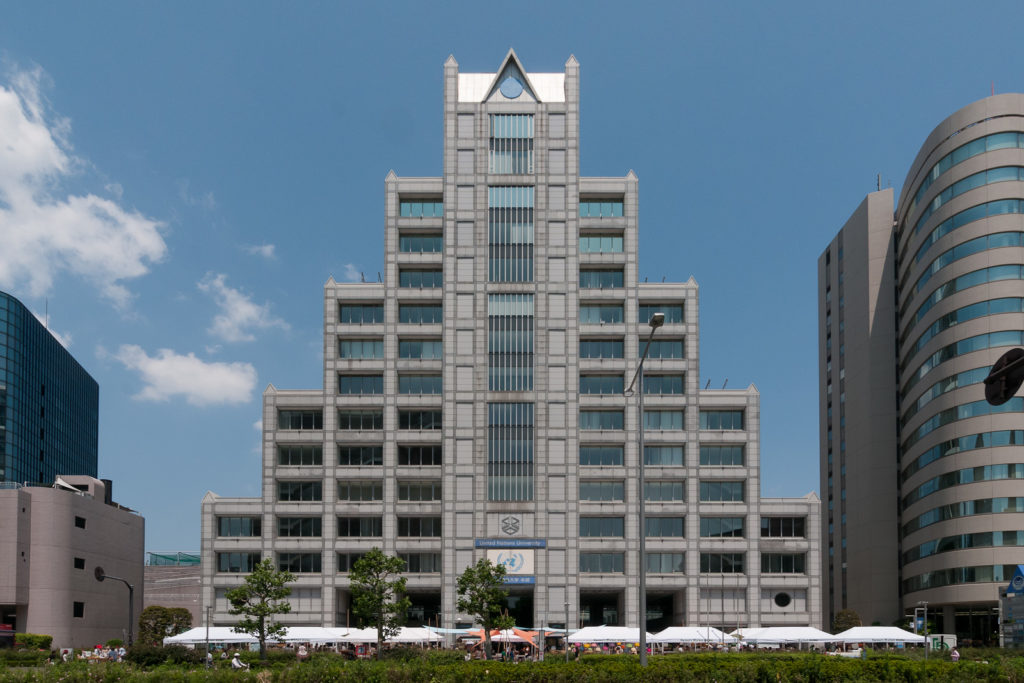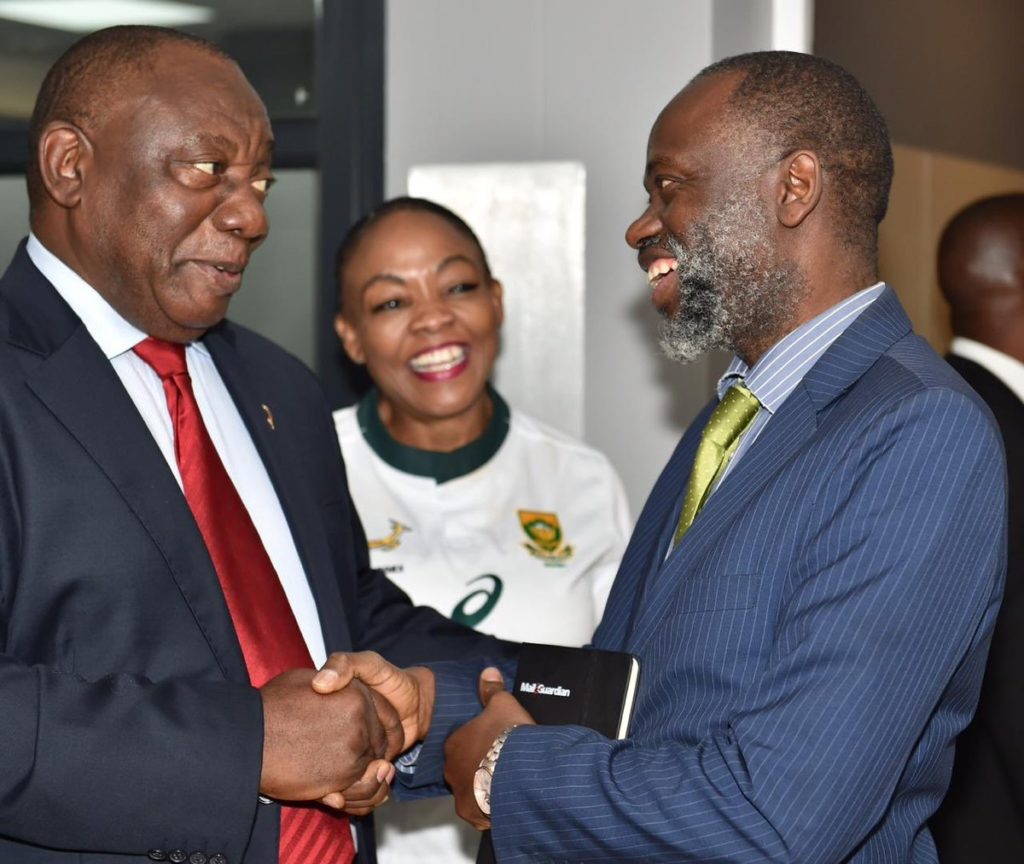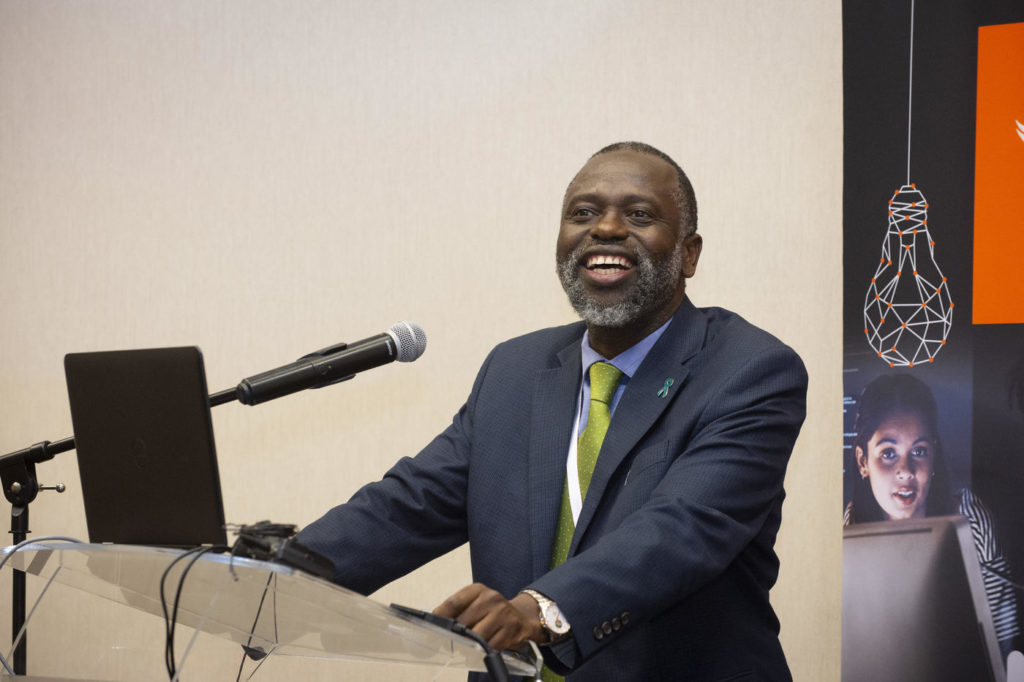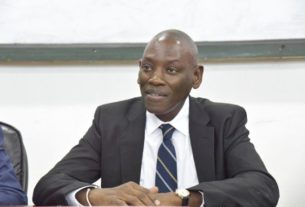After an extensive international search process and following consultations with the Director-General of the United Nations Educational, Scientific and Cultural Organization (UNESCO), Audrey Azoulay, and with her concurrence, United Nations Secretary-General António Guterres has appointed Professor Tshilidzi Marwala of South Africa as Rector of the United Nations University (UNU) in Tokyo.
Prof. Marwala will take office as Rector of the United Nations University on 1 March 2023 for a five-year term, succeeding current Rector Dr David Malone (2013‒2023). In the role of UNU Rector, Prof. Marwala will hold the rank of Under-Secretary-General of the United Nations. He will be based at UNU Headquarters in Tokyo.
The United Nations University, with headquarters in Tokyo, Japan, was established in 1975 as a global research and teaching organization; UNU currently has institutes in 12 countries worldwide. The overarching goal of the University is to contribute to global sustainable development that will enable both present and future generations to live a decent life in peace, freedom, safety, and good health. In carrying out its work, UNU focuses on research, teaching, and capacity building, and provides science-based advisory services as a United Nations system think tank. UNU maintains close cooperative relationships with other United Nations system organizations (agencies, programmes, commissions, funds, and convention secretariats) and works in both formal and informal partnerships with leading universities, research institutions, and public sector organizations all over the world.

The UNU Rector is selected and appointed by the Secretary-General of the United Nations in consultation with, and with the concurrence of, the Director-General of the United Nations Educational, Scientific and Cultural Organization, chosen from a panel of candidates nominated by the UNU Council.
An accomplished scholar
Professor Marwala is an accomplished scholar and thought leader with multidisciplinary research interests that include the theory and application of artificial intelligence to engineering, computer science, finance, social science and medicine. He has an extensive track record in human capacity development and is committed to leveraging technology and global connectedness towards the pursuit of the Sustainable Development Goals.
Since 2018, Professor Tshilidzi Marwala is the Vice-Chancellor and Principal of the University of Johannesburg (South Africa), a university of more than 50,000 students and nearly 6,000 academic and support staff. His previous positions with the University of Johannesburg included Deputy Vice-Chancellor, Research and Internationalization (2013‒2017) and Executive Dean, Faculty of Engineering and Built Environment (2009–2013).

Prof. Marwala previously had served as Associate Professor and then full Professor, the Carl and Emily Fuchs Chair of Systems and Control Engineering as well as the SARChI Chair of Systems Engineering at the Department of Electrical and Information Engineering at the University of the Witwatersrand (South Africa; 2003‒2008); as Executive Assistant to the Technical Director, South African Breweries (2001–2003), where he worked on projects to develop artificial tasters and the electronic nose; and as Post-Doctoral Research Associate, Imperial College (UK; 2000–2001).
Visiting scholar
Professor Tshilidzi Marwala has been a visiting scholar at Harvard University, University of California at Berkeley, Wolfson College of the University of Cambridge and Nanjing Tech University. He has also been a member of the International Consultative Council at the Silesian University of Technology, Gliwice, Poland, International Visiting Committee at Case Western Reserve University and a trustee of the Nelson Mandela Foundation.
Professor Tshilidzi Marwala received a PhD degree, specialising in Artificial Intelligence and Engineering, from the University of Cambridge (UK) in 2000; a Master of Mechanical Engineering degree from the University of Pretoria (South Africa) in 1997; and a Bachelor of Science in Mechanical Engineering (magna cum laude) from Case Western Reserve University (USA) in 1995. He also completed the Columbia Business School’s Advanced Management Program and the Harvard Business School’s Program for Leadership Development.
Member of several academies
Prof. Marwala is, inter alia, a Fellow of the American Academy of Arts and Sciences, The World Academy of Sciences (TWAS), the Academy of Science of South Africa, the African Academy of Sciences, and the South African Academy of Engineering; a Senior Member of the Institute of Electrical and Electronics Engineers; and a Distinguished Member of the Association for Computing Machinery. He has served on a variety of global and national policymaking bodies, including as Deputy Chair of South Africa’s Presidential Commission on the Fourth Industrial Revolution. He has also worked with the United Nations through agencies such as UNESCO, UNICEF, WHO, and WIPO.
His research interests are multi-disciplinary and they include the theory and application of artificial intelligence to engineering, computer science, finance, social science and medicine. He has an extensive track record in human capacity development, having supervised 47 Master’s and 28 Doctoral students to completion. Some of these students have proceeded with their doctoral and post-doctoral studies at leading universities such as Harvard, Oxford, Cambridge, British Columbia, Rutgers, Purdue, Chiba and Waseda.

Professor Tshilidzi Marwala is the author of more than 20 books ― most recently, Leadership Lessons from Books I Read (2021) and Closing the Gap: The Fourth Industrial Revolution in Africa (2020). He has published 14 books on artificial intelligence, one of them having been translated into Chinese. He has published dozens of book chapters, journal papers, and conference papers. He has also published more than 300 magazine articles and newspaper op-eds, primarily on topics of artificial intelligence, big data, and the fourth industrial revolution.
Prof. Marwala has received more than 45 awards, including the Order of Mapungubwe, South Africa’s highest honour, and the Academy of South Africa’s Science-for-Society Gold Medal, and was named the 2021 IT Personality of the Year by the Institute of IT Professionals South Africa.
He was a delegate to the 1989 London International Youth Science Fortnight (LIYSF) when he was in high school. His writings and opinions have appeared in the magazines New Scientist, The Economist and Time.
He has also been appointed as Deputy Chair of the south Africa’s Presidential Commission on the Fourth Industrial Revolution and also served as a councillor for the National Advisory Council on Innovation, is an executive member of the South African Council for Automation and Computation, and a fellow of the Council for Scientific and Industrial Research.
He is fluent in English, Venda and Afrikaans.



